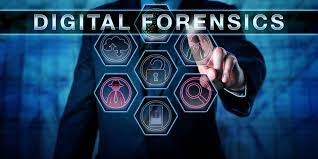About this course
1. Introduction to Digital Forensics
· Definition of digital forensics
· Types of digital evidence
· The forensic investigation process
2. Digital Forensic Tools
· Digital forensic software
· Hardware tools for digital forensics
· Mobile device forensics
3. Digital Evidence Acquisition
· Methods of acquiring digital evidence
· Imaging and cloning techniques
· Chain of custody and evidence handling
4. File Systems and Data Recovery
· Understanding file systems
· Techniques for recovering deleted files
· RAID recovery
5. Forensic Analysis of Operating Systems
· Analysis of Windows, Linux, and macOS systems
· Registry analysis
· Memory forensics
6. Network Forensics
· Investigating network traffic
· Tools for network forensics
· Intrusion detection and prevention
7. Malware Analysis
· Types of malware
· Techniques for analyzing malware
· Reverse engineering malware
8. Digital Forensic Reporting
· Writing a forensic report
· Courtroom presentation of digital evidence
· Expert testimony
9. Legal and Ethical Considerations
· Chain of custody and preservation of evidence
· Legal issues in digital forensics
· Ethical considerations for digital forensic professionals
10. Digital Forensic Investigations
· Case studies in digital forensics
· Investigating cybercrime
· Best practices for conducting digital forensic investigations
This course outline covers the essential topics in digital forensics, including the investigation process, tools, and techniques for acquiring and analyzing digital evidence. It also covers legal and ethical considerations for digital forensic professionals and provides case studies to demonstrate the practical application of digital forensics in real-world scenarios.
who should attend and its benefits 5 points
Digital forensics training would be beneficial for the following professionals:
1. Law enforcement professionals
2. Cybersecurity professionals
3. Information technology (IT) professionals
4. Legal professionals
5. Risk management professionals
Benefits of attending a digital forensics course include:
1. Developing skills in identifying, acquiring, and analyzing digital evidence
2. Learning techniques to investigate cybercrime and other digital-related offenses
3. Gaining knowledge of legal and ethical considerations related to digital forensics
4. Enhancing cybersecurity knowledge and skills to prevent future digital incidents
5. Improving job prospects and opportunities in the digital forensics field.
Comments (0)



.png)




